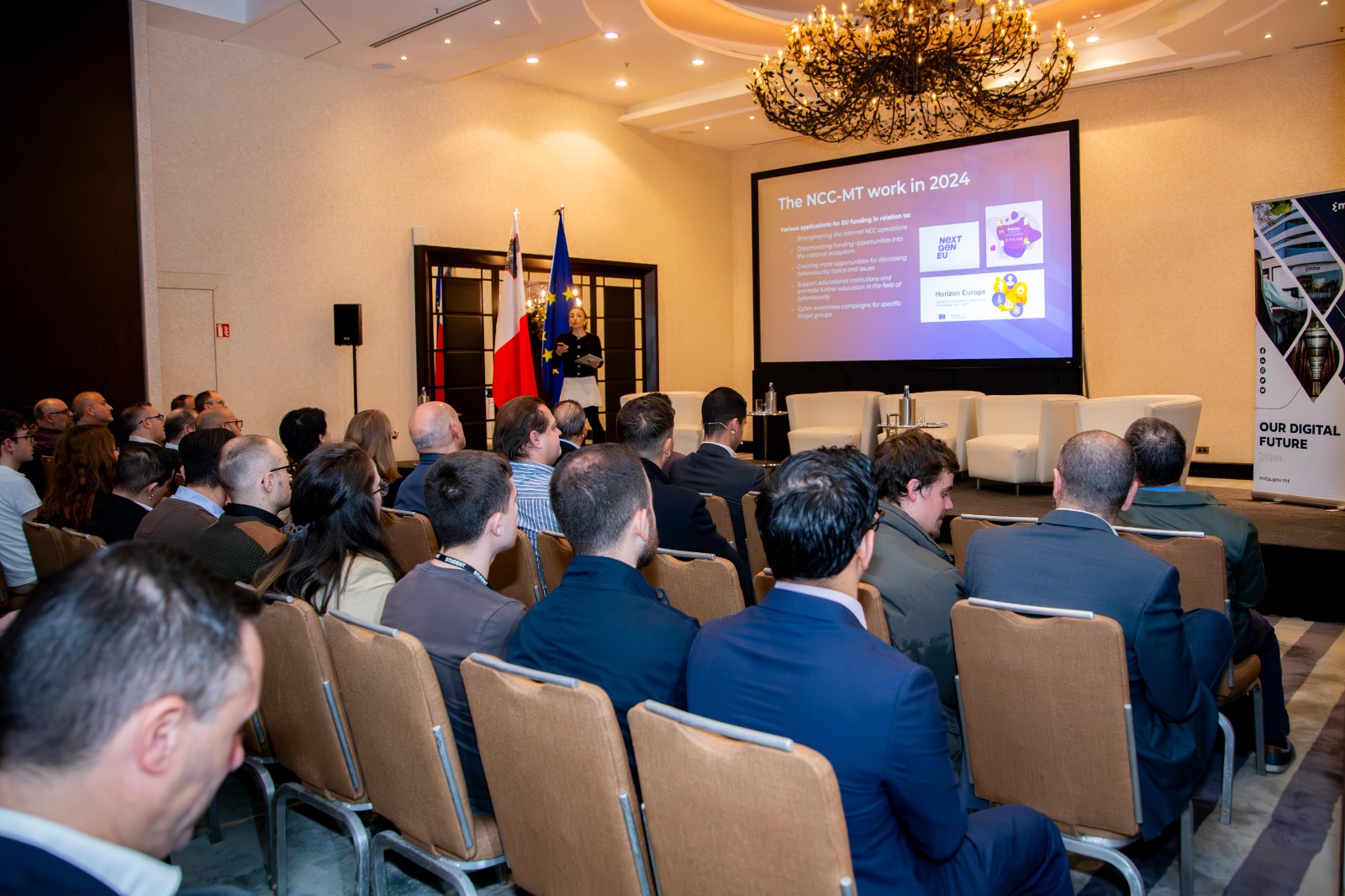The National Cybersecurity Coordination Centre (MITA-NCC) marked the end of 2024 with its final CYBER Breakfast event, aptly titled “Year in Review,” held on 11th December. This event offered a comprehensive overview of the cybersecurity landscape in Malta, highlighted the progress made throughout the year, and set the tone for upcoming initiatives.
Celebrating progress: Highlights of 2024
The National Cybersecurity Community has experienced notable growth since its inception in November 2022. Membership surged to over 85 entity members and 706 individual members, reflecting the rising importance of cybersecurity across sectors. This expansion underscores MITA-NCC’s commitment to fostering collaboration within Malta and across the European Union.
Key initiatives during 2024 included:
- Cybersecurity awareness campaigns targeting specific groups.
- Educational partnerships, supporting institutions like the University of Malta and MCAST to promote further education in cybersecurity.
- Funding opportunities: Maltese entities were encouraged to apply for EU funding, with MITA-NCC facilitating partner searches and consultations.
Strengthening Malta’s cyber resilience
Outgoing Chair Jonathan Cassar reflected on the challenges of evolving cyber threats, urging resilience and emphasising the importance of robust recovery strategies. His tenure saw significant strides, including the introduction of a Coordinated Vulnerability Disclosure Policy (CVDP), a pioneering step aimed at fostering trust and collaboration between stakeholders. Cassar will now chair the National Cybersecurity Steering Committee, with Katia Bonello succeeding him as Chair of the Consultation Council.
Katia Bonello pledged to build on this progress, with a particular focus on driving collaboration across sectors and nurturing a cybersecurity culture.

Industry insights: 2024 in review
A panel discussion moderated by Vice Chair Donald Tabone brought together diverse sector representatives to share challenges and opportunities.
Key takeaways included:
- Financial sector: Carmel Vella highlighted the Digital Operational Resilience Act (DORA) and its ripple effect on supply chain security and governance.
- Public service: Clinton Farrugia emphasised bureaucratic constraints and skill shortages, alongside the need for collaboration with private sector experts.
- Service providers: Josef Sammut underlined the importance of staying ahead of the evolving threat landscape through regular risk assessments and regulatory alignment.
- Online gaming sector: Keith Barbara shared how he has been actively working to engage Malta Gaming Authority (MGA) licence holders and expand the NCC by promoting its mission.
- All other sectors: Kevin Abela highlights that small entities often struggle with cybersecurity due to limited expertise and resources, so he is working to simplify the process through clear, actionable checklists and practical support.

Insights from academia and research
A key highlight of the CYBER Breakfast was a fireside chat led by Consultation Council Advisor Kirsten Cremona, featuring Academia and Research representatives Mark Micallef and Robert Abela. The session delved into efforts by local academia to address the cybersecurity skills gap.
Key achievements in 2024 included:
- The launch of a Master’s degree in cybersecurity by the University of Malta, focusing on hands-on training and practical applications.
- MCAST’s collaboration with EdTech to roll out digital forensics courses and other ad hoc training initiatives.
- Plans to develop a centralised database of cybersecurity courses to provide aspiring professionals with a clear pathway to enter the field.
Both representatives stressed the importance of starting with younger generations to build a strong foundation for the future, while also addressing the human element often overlooked in technical courses.
Addressing the skills gap
The Eurobarometer Survey revealed that 74 per cent of companies had not conducted cybersecurity training, despite recognising its importance. Bridging this gap remains a priority, with local academia and industry leaders committed to delivering practical, accessible training initiatives.

CVD Working Group and new policy launch
The CYBER Breakfast also saw updates from the CVD Working Group, co-presented by Council Representatives Kenneth Bone and Gavril Flores. The group announced the finalisation and publication of the Coordinated Vulnerability Disclosure Policy (CVDP), which provides organisations with a framework to address and report vulnerabilities effectively. This initiative is expected to foster greater trust between stakeholders and improve Malta’s overall cyber resilience.
Key challenges discussed included ensuring legal compliance, overcoming resource limitations, and building awareness of CVDP benefits. Participants were encouraged to adopt the policy and integrate it into their organisational frameworks.
Looking ahead: 2025 and beyond
Plans for 2025 are ambitious, with MITA-NCC announcing the launch of the Awards in Cybersecurity to recognise excellence and innovation. Other initiatives include:
- Expanding membership and affiliations to enhance collaboration opportunities.
- Supporting younger generations through targeted educational initiatives.
- Driving AI-powered solutions to counter advanced cyber threats.
The way forward
As Malta prepares for 2025, the MITA-NCC remains at the forefront of fostering a secure digital environment. By leveraging collaboration, innovation, and education, the community is well-positioned to address emerging challenges and opportunities in cybersecurity.
For more information, visit the MITA-NCC website ncc-mita.gov.mt or reach out via their social media platforms.
This article is co-funded by the European Union.

Why Malta’s deferral of the OECD minimum tax could prove a long-term advantage
Malta has postponed the application of the new rules targeting large multinational companies to 2030
From Telco to TechCo: Inside Melita’s AI-powered future
With the launch of AI Solutions, the traditional Telco is boldly transforming into an innovative, technology-driven TechCo
Planning Authority launches €30 million restoration scheme
Owners of heritage properties or ones with traditional façades located in Urban Conservation Areas are eligible






